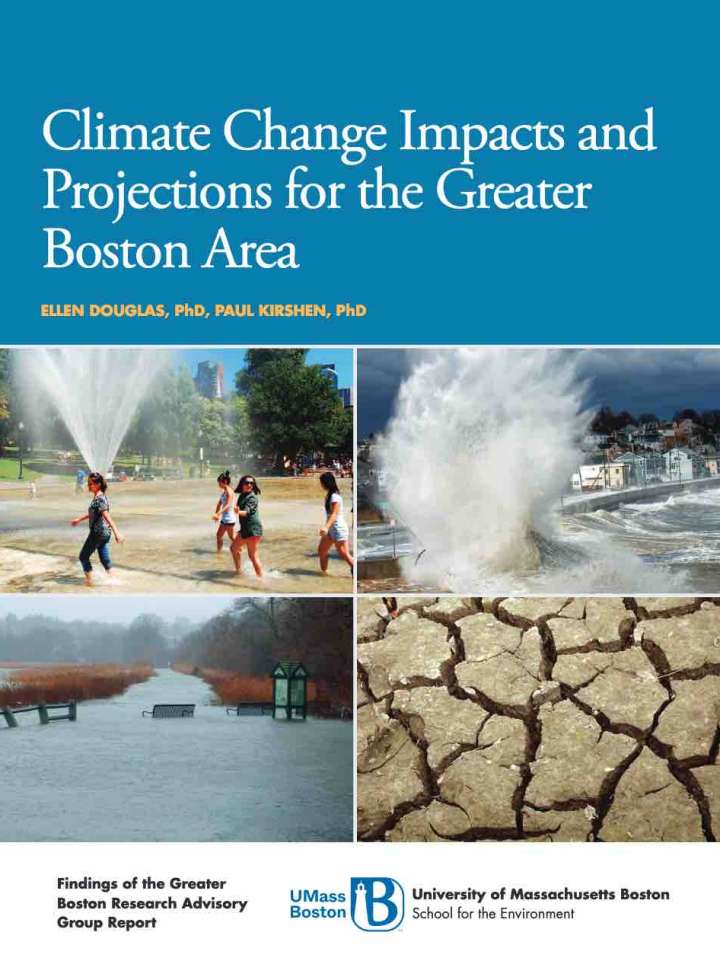Climate change impacts and projections for the Greater Boston area
This report summarizes the most recent scientific understanding of climate risk factors pertinent to Greater Boston, including storms, precipitation, flooding, groundwater, temperatures, and sea-level rise. During the writing of the inaugural Boston Research Advisory Group (BRAG) report both NASA and NOAA announced that 2015 was the warmest year on record, beating the previous record set in 2014, by 0.29 °F. Just five years later (during the writing of this report), NASA announced that 2020 had tied 2016 for the warmest year, breaking the previous record by a stunning 1.84 °F, and that the last seven years have been the warmest seven-year period on record.
These observations support the assertion made in the sixth and most recent assessment by the Intergovernmental Panel on Climate Change, which states, “It is unequivocal that human influence has warmed the atmosphere, ocean and land. Widespread and rapid changes in the atmosphere, ocean, cryosphere and biosphere have occurred.” Hence, the question is not whether the climate is changing, but what we’re going to do about it. At a minimum, we must focus efforts to get to net zero greenhouse gas (GHG) emissions by 2050. It’s not too late to achieve that goal, but time is running out for us to prevent the worst-case scenarios suggested here.
Explore further
